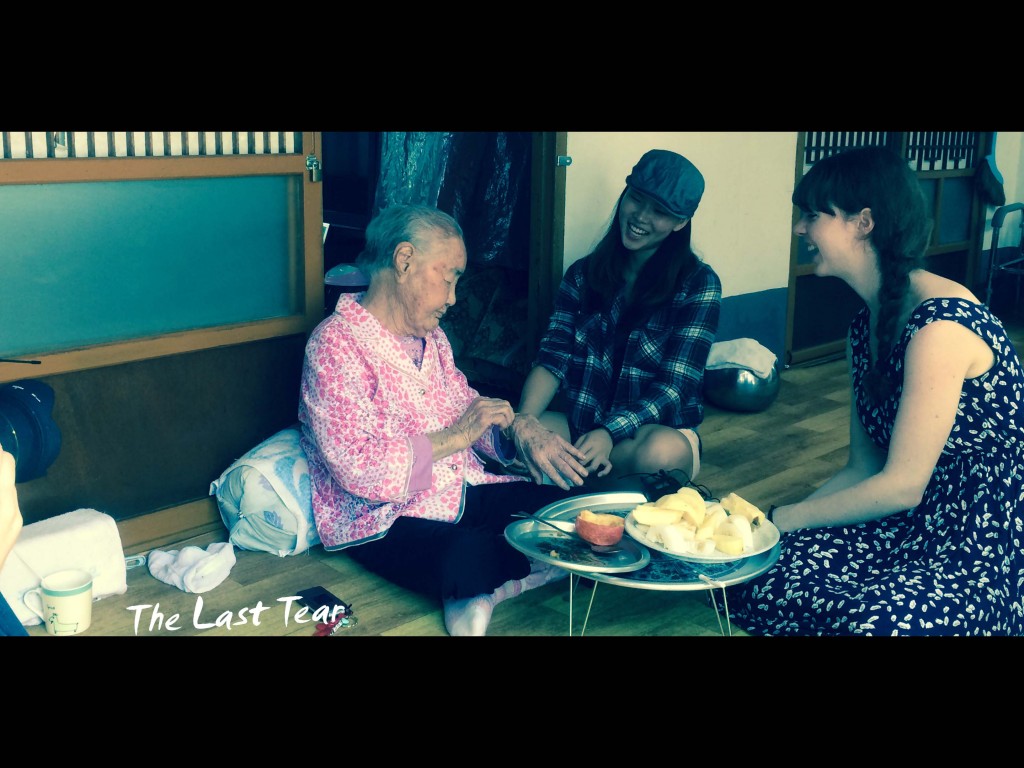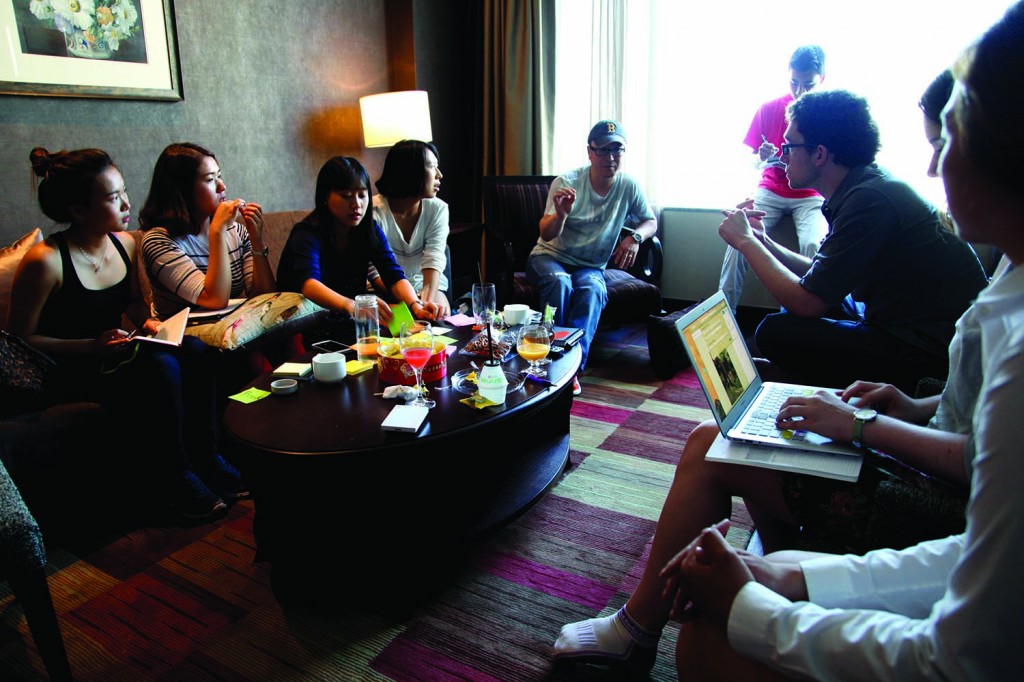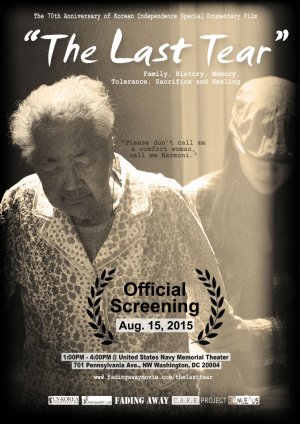- California Assembly OKs highest minimum wage in nation
- S. Korea unveils first graphic cigarette warnings
- US joins with South Korea, Japan in bid to deter North Korea
- LPGA golfer Chun In-gee finally back in action
- S. Korea won’t be top seed in final World Cup qualification round
- US men’s soccer misses 2nd straight Olympics
- US back on track in qualifying with 4-0 win over Guatemala
- High-intensity workout injuries spawn cottage industry
- CDC expands range of Zika mosquitoes into parts of Northeast
- Who knew? ‘The Walking Dead’ is helping families connect
Comfort women documentary to screen in Washington DC, Seoul on Liberation Day

Students traveling with director Christopher H.K. Lee speak with a halmoni who was a victim of sexual slavery during World War II. (Courtesy of Christopher H.K. Lee)
By Brian Han
Christopher H.K. Lee’s latest documentary “The Last Tear” will be screened in Washington D.C. and Seoul on Aug. 15 marking the 70th anniversary of South Korea’s liberation from Japanese imperialism during World War II.
The film focuses on the few surviving comfort women who were forced into sexual slavery during that time.
But it doesn’t demand an apology and it doesn’t point any fingers. Instead, the goal was to share the stories of the few who are alive to share their stories.
“Everyone is talking about the comfort women issue in the news especially since we are close to the 70th anniversary of Liberation Day,” Lee told the Korea Times. “I didn’t want to get caught up in the controversy. I wanted to get to know the halmonis (grandmothers) and their stories while also giving them a chance to have closure on the issue.”
The filmmaker traveled around South Korea with 14 college students from Harvard University, University of California, Berkeley and the University of Nebraska just to name a few. While Lee directed behind the camera, the rest of the students sat down and spoke to these women.
“I teach at universities and I’ve been involved in hosting many students from Korea,” he said. “They can be very stressed out by trying to get into colleges and then trying to find jobs. There’s no motivation for these kids to look back and see what kind of sacrifices their parents and these halmonis have made.”

Christopher H.K. Lee has a production meeting and discussion with students. (Courtesy of Christopher H.K. Lee)
In that sense, the film had another goal to preserve a piece of history that is in danger of being forgotten.
“In discovering these places and women,” he said. “We got to see the places, touch the places, and hold the hands of these ladies. It’s about learning in a very practical way.”
Lee’s 2013 documentary “Fading Away” about families affected by the Korean War received critical acclaim and was selected for screenings at film festivals around the world. He hopes that “The Last Tear” will get the same kind of attention.
“These films are part of a larger idea,” he said. “We need to hold onto our roots, our heritage and our history. It’s the foundation of our future. That’s what I’m trying to do with these projects.”
Johns Hopkins School of International Studies provided a grant to the filmmaker and as such “dignitaries, scholars and politicians” will be present at the screenings according to Lee.
The film was mostly funded out of pocket though and the director didn’t seem to mind.
“Technically this is a loss of income for me, but you can only do this with lots of passion and it’s worth it to me,” he said.

















Chiu Kok-chiung
August 17, 2015 at 12:15 AM
Abe’s failure to apologize to these most unfortunate women – in China, Korea, Taiwan,Indonesia and elsewhere in Asia – was precipitated by
the U.S. government. The U.S. government’s encouragement also has
prompted Abe to try to grab Korea’s and Taiwan’s outlying islands!
Hence, like many millions and millions of Koreans and Chinese across the world, I have been forced to boycott American and Japanese products! Let’s keep rejecting American and Japanese products!
Pingback: International Jobs In Washington Dc | Top Tip Guide Collections